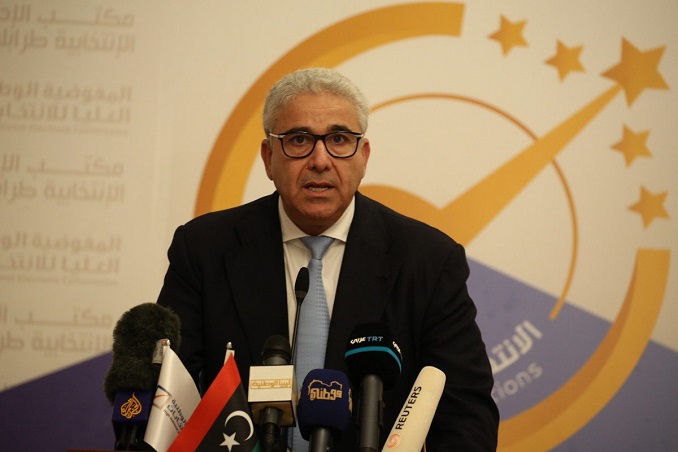![]() Libya – Libya’s political crisis is deepening with each development after the December presidential elections failed to conclude as envisioned by the United Nations. The two rival governments – one based in Tripoli backed by UN and the other in the eastern part of Libya – are facing a standoff that might result in territorial division. The Libyan parliament in the eastern part has sworn in the new administration even though the incumbent government in Tripoli has refused to hand over the power. The new government is led by former interior minister Fathi Bashagha who was sorn in as the new Prime Minister along with his cabinet on Thursday.
Libya – Libya’s political crisis is deepening with each development after the December presidential elections failed to conclude as envisioned by the United Nations. The two rival governments – one based in Tripoli backed by UN and the other in the eastern part of Libya – are facing a standoff that might result in territorial division. The Libyan parliament in the eastern part has sworn in the new administration even though the incumbent government in Tripoli has refused to hand over the power. The new government is led by former interior minister Fathi Bashagha who was sorn in as the new Prime Minister along with his cabinet on Thursday.
Addressing the Tobruk – based Parliament after being sworn in, Bashagha said that many newly appointed ministers of his cabinet had been abducted by armed groups while on their way for their swearing-in ceremony. These ministers are for foreign affairs, culture, and technical education. He further added that other ministers were also shot at by the armed groups. “Some are trying to drag us into war and infighting but we will not give them such a chance. We will not spill a single drop of blood,” Bashagha said. “We will study all options so that we can take over power in Tripoli by force of the law and not by force.”
On Tuesday, Bashagha had submitted a list of his cabinet ministers to the eastern Libya-based House of Representatives. 92 out of 101 legislators in House attendance had backed the cabinet.
Related Posts
Gamal Salem Shaaban, who had been appointed as economy and trade minister in the new cabinet, announced his resignation through a social media video. “That session lacked transparency and integrity and did not meet procedural standards,” Shaaban said. “There is no honor in being part of a cabinet that will bring about war and destruction.”
United Nations had also condemned the new cabinet voting as a flawed process.
As the rival administration’s appointment against the Tripoli-based incumbent government takes place, authorities fear it could further trigger conflict in the country that has already witnessed about 10 years-long civil war due to conflicting administration.

